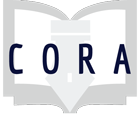This short lesson introduces identifying search terms with a Koosh ball. The 10 minute activity can be used in one-shot instruction sessions or built in to credit bearing information literacy courses.
Assignments
A one-shot or seminar class on fake news tied to source evaluation. Examination of the factors at play in the creation of misinformation; insight into how to select sources; tools and strategies for evalutating content of stories, authors, and news outlets.
Students will learn how serial publications are presented in databases and how to read them chronologically to determine trends over time using the MLA International Bibliography.
The Value of Free and Deep Web Resources (aka Google vs. Databases)
A hybrid teaching module with two elements: an interactive online module for students to complete ahead of class and a face-to-face lesson plan that builds on the skills learned in the online lesson. The in-class session provides students with a critical exploration of the purchasing power of minimum wages across states and/or the earnings gap between men and women employed full time.
What is “fake news” anyway? Are we living in a post-truth world? These University of Michigan course materials will provide opportunities to discuss and analyze news production, consumption and evaluation. Students will develop the critical thinking skills necessary to be an informed citizen; understand how their worldview affects their interpretation of the news; and create a personal strategy for fact-checking and evaluating the news.
This is designed to introduce students to the wonderful world of periodicals, in their great variety, and to how they will appear in different databases. It also begins the work of building their skills at evaluating information sources, determining perspective.
This exercise was designed for 1st year writing students with several different goals in mind: • encourage deeper, closer reading; • introduce the concept that information sources have perspective; • develop vocabulary around describing information and perspective; • acquaint students with the many values/uses of subject encyclopedias; • practice topic narrowing using these types of encyclopedia articles.
This assignment follows from a presentation that shows high school and early college students how information gaps function. The presentation uses information regarding the dwarf planet Pluto as an example, then prompts students to apply the tools they've learned to investigate an information gap in solar energy policy: solar energy AND communities experiencing high poverty rates.
(Thanks to Amanda Meeks at Northern Arizona University for sharing her insight into her development of an avatar-based method for promoting empathy in classrooms and for allowing their use in other learning spaces, including clinical settings.)
